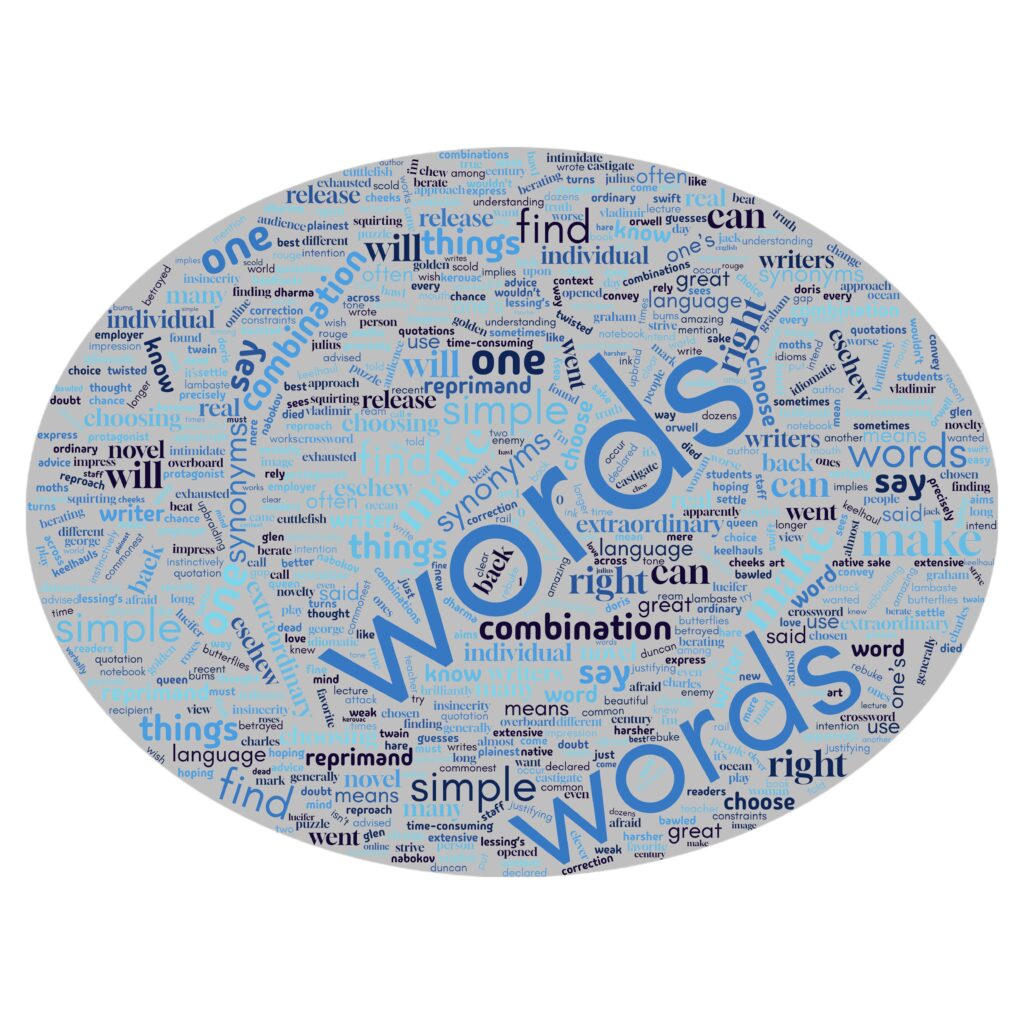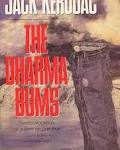Get Your Words Right
I cannot make my days longer, so I strive to make them better.
Henry David Thoreau
I’m afraid some writers have twisted these great words into, “I cannot make my words better, so I strive to make them longer.” As George Orwell brilliantly put it: “the great enemy of clear language is insincerity. When there is a gap between one’s real and one’s declared aims, one turns, as it were, instinctively to long words and exhausted idioms, like a cuttlefish squirting out ink.”

In Doris Lessing’s novel The Golden Notebook, her writer protagonist writes, “Words. Words. I play with words, hoping that some combination, even a chance combination, will say what I want.”
Sometimes we writers settle for a combination of words that almost works, justifying our weak choice with time constraints. Worse, our words are chosen to impress or intimidate readers.
Vladimir Nabokov advised us, “try to find new combinations of words (not for the sake of their novelty, but because every person sees things in an individual way and must find his own words for them).”
 Finding the right words to express our individual view isn’t easy. In his novel I Lucifer, Glen Duncan said of a woman: “Words betrayed her: beautiful butterflies in her mind; dead moths when she opened her mouth for their release into the world.” How many times have you thought you knew just what you wanted to say or write, but your words died upon release?
Finding the right words to express our individual view isn’t easy. In his novel I Lucifer, Glen Duncan said of a woman: “Words betrayed her: beautiful butterflies in her mind; dead moths when she opened her mouth for their release into the world.” How many times have you thought you knew just what you wanted to say or write, but your words died upon release?
I rely too often on Mark Twain, so I went back a century and across the ocean and found the advice of writer Julius Charles Hare (1795 – 1855) “When you doubt between two words, choose the plainest, the commonest, the most idiomatic. Eschew fine words as you would rouge: love simple ones, as you would native roses on your cheeks.” (Guesses at Truth) Apparently, eschew was a common word back then.
You can find extensive synonyms online or in a book, but it’s generally best to choose simple words, words that people know and that mean precisely what we intend. A recent crossword puzzle told me that lambaste means “to beat with a cane.” More often, it means to attack verbally and has dozens of synonyms: rebuke, upbraid, reprimand, scold, bawl out, castigate, chew out, berate, reproach, keelhaul, rail (at), lecture, ream (out), among them.
Many synonyms, true, but choosing one or another can change the tone and the intention of our words, not to mention the understanding of the recipient. If an employer keelhauls her staff, that implies a harsher approach, say, than a mere reprimand or correction. Wouldn’t you have a different image of a teacher berating or upbraiding his students than you would if he bawled them out?

Choosing the right word for the audience, the context, and the impression you wish to convey can be time-consuming, but English author Graham Swift wrote, “The real art is not to come up with extraordinary clever words but to make ordinary simple words do extraordinary things. To use the language that we all use and to make amazing things occur.”
Or as Jack Kerouac said in The Dharma Bums, “One day I will find the right words, and they will be simple.”
I know I went overboard with the quotations, but do you have a favorite one on words?